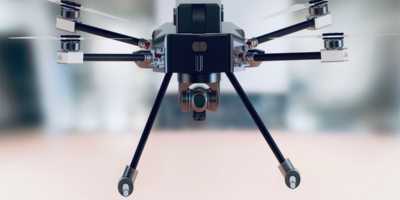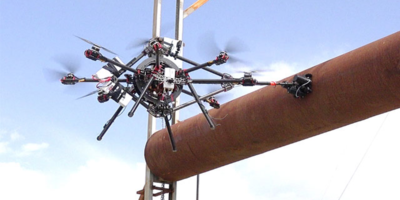Arunachal Pradesh is a geographically diverse state with a majority of its population residing in rural areas, some of which are remote or hard to access. Thus, at a time, they deprived of essential services. Drone technology can be used to substantially impact public delivery and governance, improving vital indicators across all fields.
IMPLEMENTING AGENCY:
State Remote Sensing Application Centre (SRSAC), an autonomous body under Department of Science and Technology, Govt. of Arunachal Pradesh shall be the nodal agency for implementation of drone technology and providing related drone services in the state of Arunachal Pradesh, as the Centre is already a notified agency for Remote Sensing and Space technology, etc. The SRSAC shall see the implementation of the said policy and also develop platform for building skilled manpower for overall growth and development of the State by providing necessary infrastructure for the growth of Drone ecosystem in the State. The SRSAC shall also from time to time evaluate the policy and may update the policy as required. For promotion of Drone Technology and its allied services in the state, SRSAC shall develop a Centre of Excellence for Drone technology.
INITIATIVES:
SRSAC Drone Training Institute through State Drone Excellence Centre: While there are a wide range of potential applications, the focus areas for the government are agriculture, energy, Land Management, Forestry, municipal administration, mining, irrigation and public safety. The Government shall set up a State Drone Excellence Centre and a Drone Institute that will help government departments in procuring services from drone service providers in the following ways:
- Empanel vendors so that each department will not have to go through the RFP process
- Identify use cases or services relevant to the departments
- Enter in to framework agreements with vendors on prices, SLAs
- Undertake capacity building programs for government officials Arunachal Pradesh government understands that since the drone industry in India is ready to take off, there will be a huge talent demand. The skill development needs to be developed through intensive training programs, developing educational curriculum and investing in research.
The government plans to:
- Collaborate with Atal Innovation Mission to impart drone knowledge and skills to school students. Introduce drone technology modules and provide firsthand experience to the school students and support ATL initiative with teacher training sessions.
- Engage with TASK and introduce drone training modules in technical institutes to focus on skill sets required to make graduate students industry-ready. The modules will be created in collaboration with the industry and as per the DGCA guidelines. It will cover pre-flight, in-flight and post flight modules. Also, collaborate with government institutes to provide facility for practical training of students.
- Encourage the development of specific domain-led programs for specific requirements like aerial photography, surveillance, remote sensing etc. These domain-led programs will help develop a freelancing ecosystem. Government will provide incentives to the drone academies to create these specific modules.
- Collaborate with leading technological universities to create specialized courses on drone engineering so that the drone manufacturers can scout drone design engineers directly from colleges.
- Fund drone engineering research in leading technical universities through a public-private partnership model.











